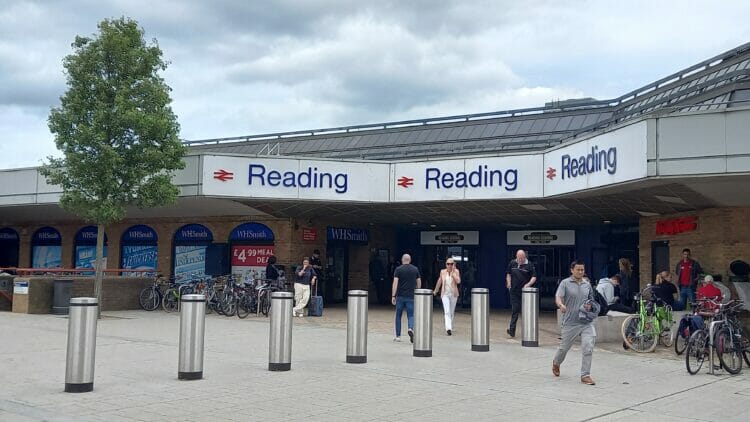THE RAIL, Maritime and Transport workers union (RMT) has announced that its members will take part in its biggest series of strikes to date.
The RMT’s 40,000 members will stage a walkout over eight days, with the announcement coming just weeks after strikes this month were called off at the last minute to hold talks with rail companies.
On Tuesday, November 24, the union announced that members would be striking during December and January, causing significant disruption to rail services across the country.
Overall, four 48-hour strikes will take place, with days following the strikes seeing further disruption.
RMT members will be striking on:
- Tuesday-Wednesday, December 13-14;
- Friday-Saturday, December 16-17;
- Tuesday-Wednesday, January 3-4;
- Friday-Saturday, January 6-7;
On strike days, it is estimated that only one in five trains will run, and members have also been banned from working on “rest” days or working overtime between Sunday, December 18, and Monday, January 2.
Rail companies are still assessing the levels of disruption caused and are yet to announce the extent of services that will be running during the strikes.
In a statement on its website, the RMT said: “Despite every effort made by our negotiators, it is clear that that the government is directly interfering with our attempts to reach a settlement.
“The union suspended previous strike action in good faith to allow for intensive negotiations to resolve the dispute.
“Yet, Network Rail have failed to make an improved offer on jobs, pay and conditions for our members during the last two weeks of talks.
“At the same time Rail Delivery Group, representing the train operating companies, have also broken a promise to make a meaningful offer on pay and conditions and even cancelled negotiations that were due to take place [on Monday, November 21].
“We also have evidence from all 14 of the train companies denying that Rail Delivery Group has the authority to conduct negotiations on their behalf, even as the RDG urged us to come back to the table.”
RMT general secretary Mick Lynch said: “This latest round of strikes will show how important our members are to the running of this country and will send a clear message that we want a good deal on job security, pay, and conditions for our people.
“We have been reasonable, but it is impossible to find a negotiated settlement when the dead hand of government is presiding over these talks.
“The employers are in disarray and saying different things to different people sometimes at the same time.
“This whole process has become a farce that only the new Secretary of State can resolve. When I meet him later this week, I will deliver that message.”
He continued: “In the meantime, our message to the public is we are sorry to inconvenience you, but we urge you to direct your anger and frustration at the government and railway employers during this latest phase of action.
“We call upon all trades unionists in Britain to take a stand and fight for better pay and conditions in their respective industries. And we will seek to coordinate strike action and demonstrations where we can.
“Working people across our class need a pay rise and we are determined to win that for our members in RMT.”
The strikes are part of an ongoing dispute among rail workers and rail companies concerning pay and working practices.
Both ASLEF and RMT members are seeking pay raises for members which they argue would combat rising inflation.
RMT has been offered an 8% pay rise spread over two years, but an agreement has yet to be reached between operators.
The RMT is also seeking assurances for its members in light of rail operators looking to change working practices, which it fears could result in job cuts.
























